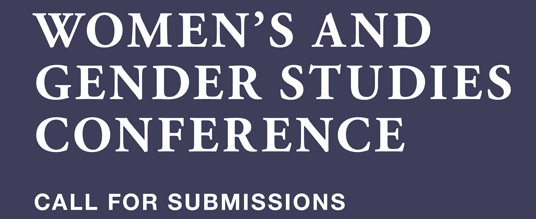
The 21st annual Women and Gender Studies Conference will return to Truman State University’s campus January 2017 with a theme of “Engendering Social Justice.”
The WGST conference presents creative abstracts from student and faculty submissions that are no longer than 250 words. Papers are chosen based on the quality of work and adherence to the theme.
Nancy Moore, health and exercise sciences professor, says she will be helping to coordinate the conference. Moore says she will work alongside WGST Conference chair Monica Barron, sociology professor Victoria Mayer and English professor Christine Harker.
Moore says the conference’s theme was an idea she, Barron, Mayer and Harker came up with during their brief meetings. Moore says the purpose of the theme was to not only incorporate people with a feminist perspective, but to include and represent people from other perspectives who study different disciplines.
Moore says the WGST committee has booked Hannah Bonner, a social activist and Methodist minister, to be the keynote speaker for the conference. Moore says the Multicultural Affairs Center will co-sponsor Bonner’s visit to campus January 2017.
Although this is her first time coordinating a WGST Conference, Moore says she has attended WGST conferences in the past, and she says she thinks they’re valuable.
“[The conference] was a place for students to have conversations over important [issues] and interact with faculty and other students and see what they’re doing and how they’re trying to progress equality,” Moore says. “It’s important to learn how to be an activist, whether out in the community or in academia and to [kind of] see those different ways.”
Moore says the conference is also a good place for people to hear voices not normally heard in public spaces while also voicing their own opinions.
Moore says she encourages students and faculty to attend the conference because it can be a way to open up people’s minds and possibly help them feel more comfortable discussing the ideas of feminism.
“[People should attend] if they want to learn how to progress social justice and see what’s being done and gain more knowledge, to find people who are like-minded [and] to also, maybe, encourage you in your own efforts,” Moore says.
Helping to provide guidance on next year’s conference is previous WGST conference organizer Linda Seidel, who is an English professor and Director of Graduate Studies.
Seidel says the WGST Conference started at Truman State University in 1996 and began as a small-scale event.
“We had a bunch of papers, not even in very large rooms, but one of the hallmarks of this particular conference was that undergraduate students, graduate students, [and] faculty members presented papers together, which, as far as I know, is still unique on this campus and is somewhat unusual on most campuses, so I think it’s one of our strong points,” Seidel says. “And [what’s special] is the very fact that we’ve been able to keep it going all this time, and I coordinated many of those conferences myself.”
Seidel says the conference has had themes such as composing women, transgender issues and identities, and self-fashioning. Seidel says the conference has also managed to attract special guest speakers in the past, such as gender theorist Kate Bornstein.
Although initially skeptical of the idea of women’s studies when she was younger, Seidel says the subject and the conference are both important because they allow people a chance to think beyond society’s generalizations.
“Women are half the human race, you know,” Seidel says. “And if you just study men and then try to generalize everything you learn about men to women as well, some of that’s [going to] fit and some of it’s really not [going to] fit. Taking account of gender and paying attention to it, I think, has really sort of made new insights possible for a lot of people. Really opened up our ways of thinking about how we get along with each other in the world and what difference gender issues make and so forth.”
This appeared in the Nov. 17 issue of the Index.
